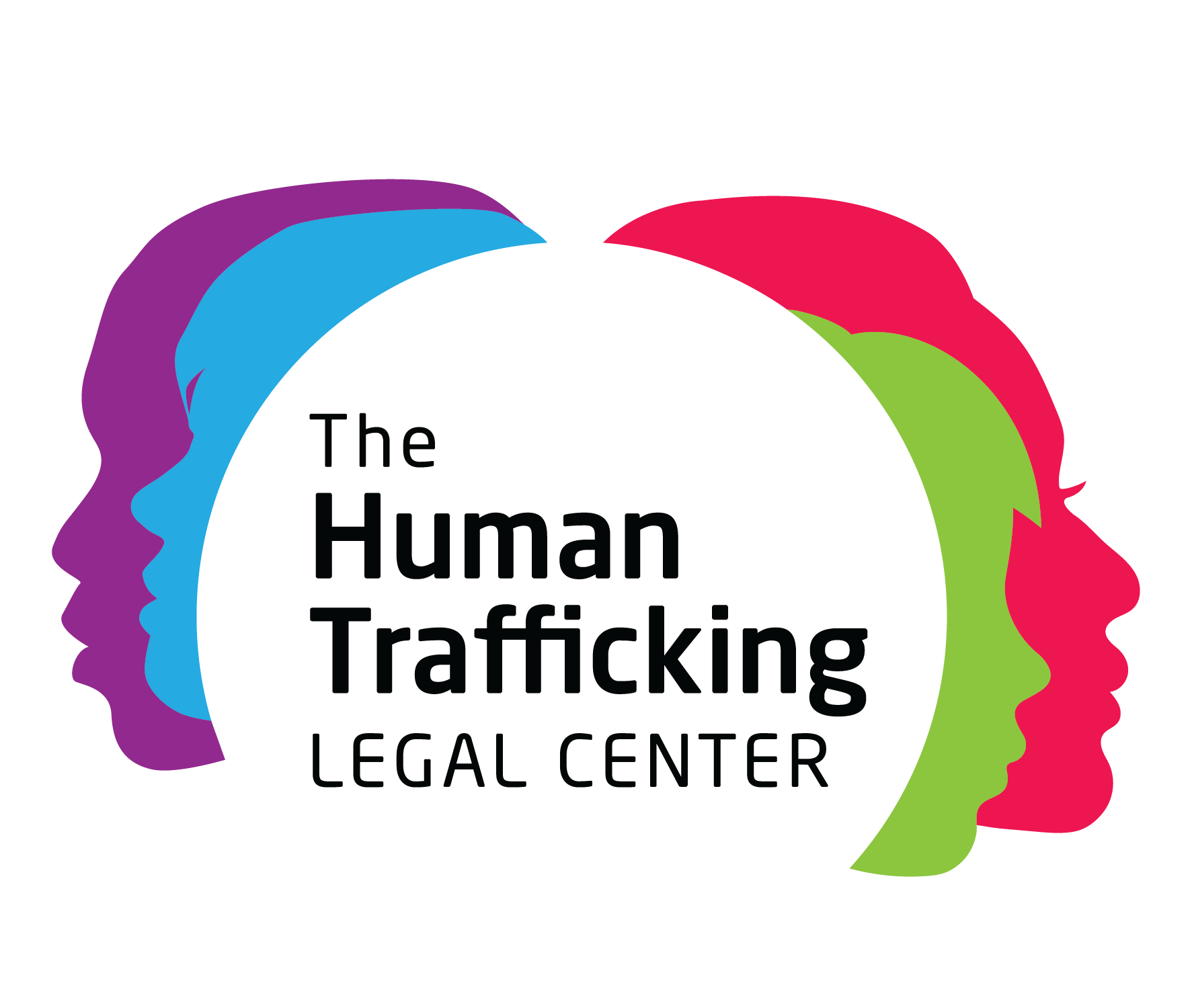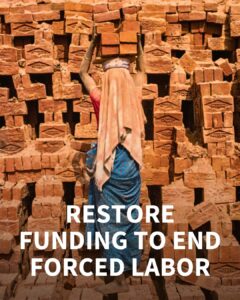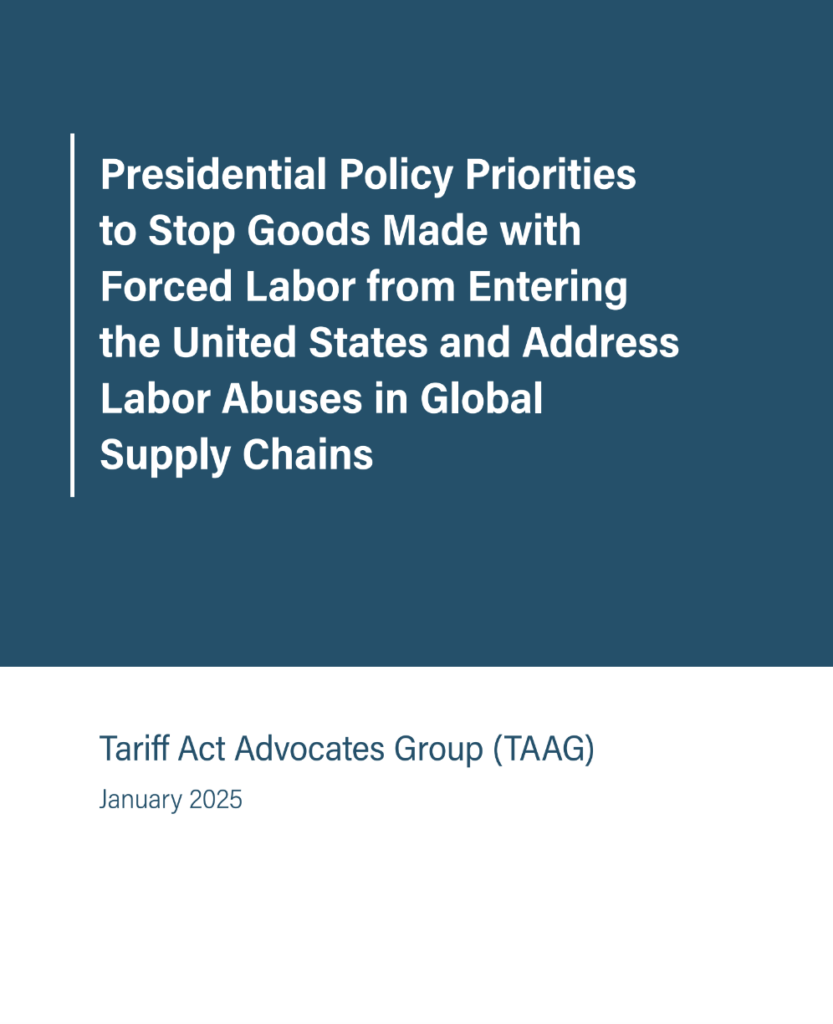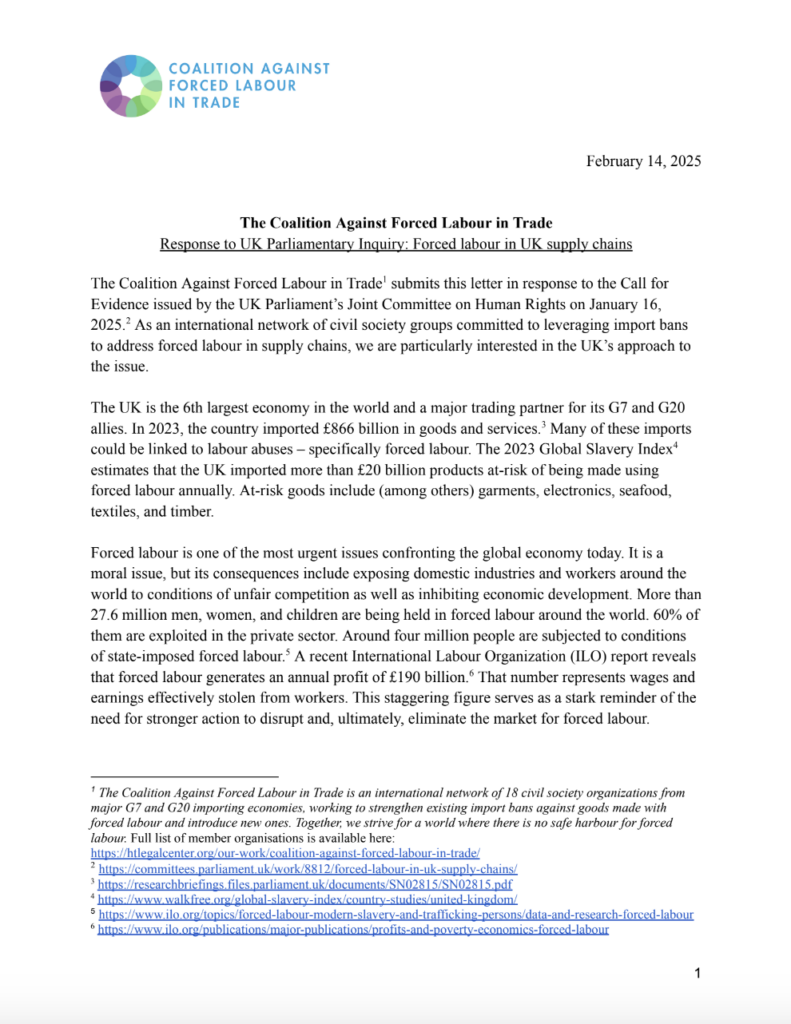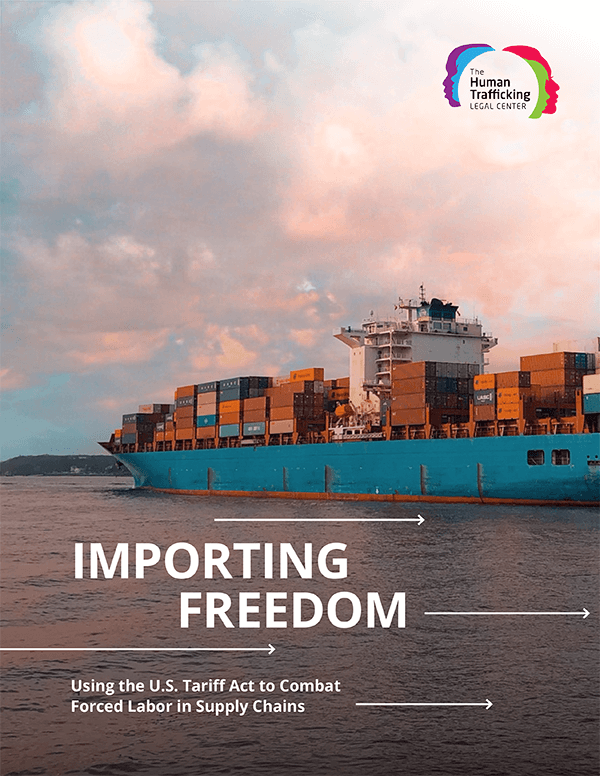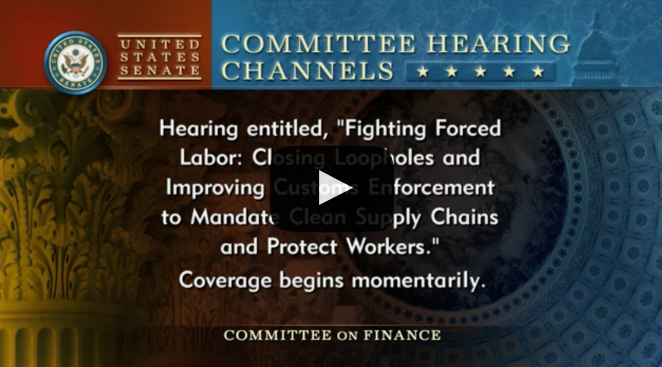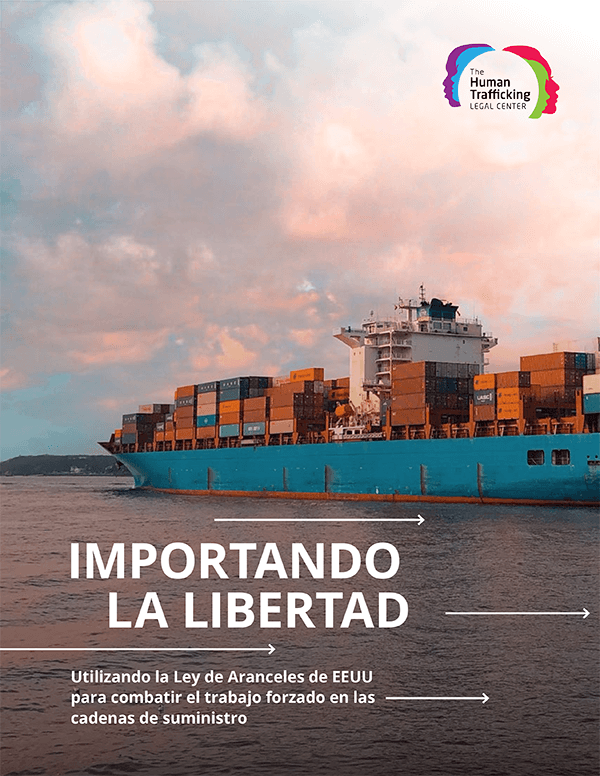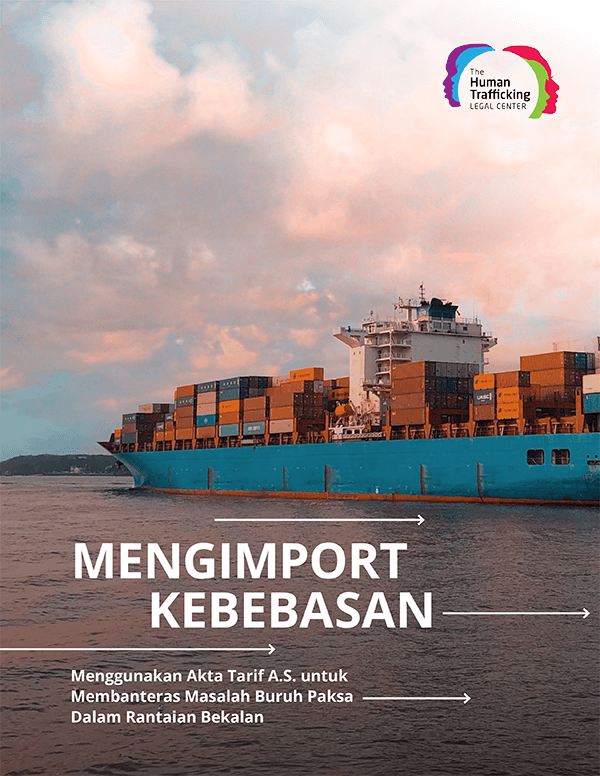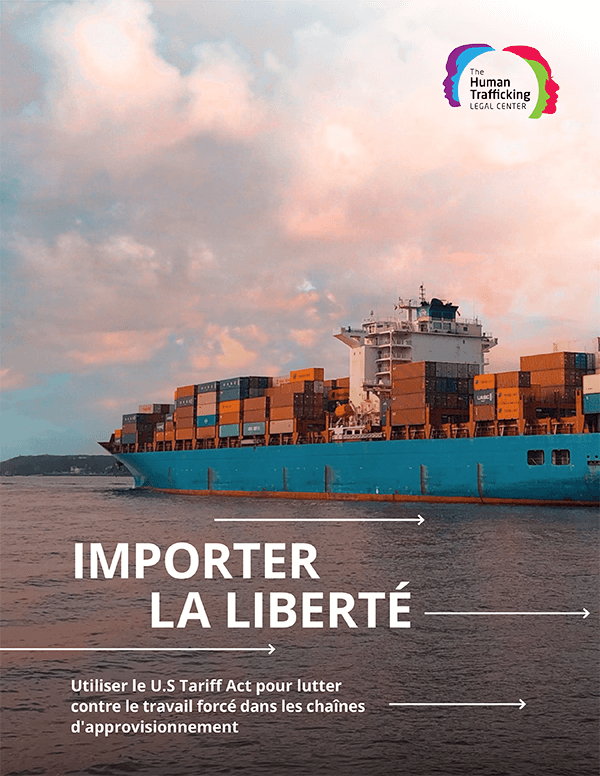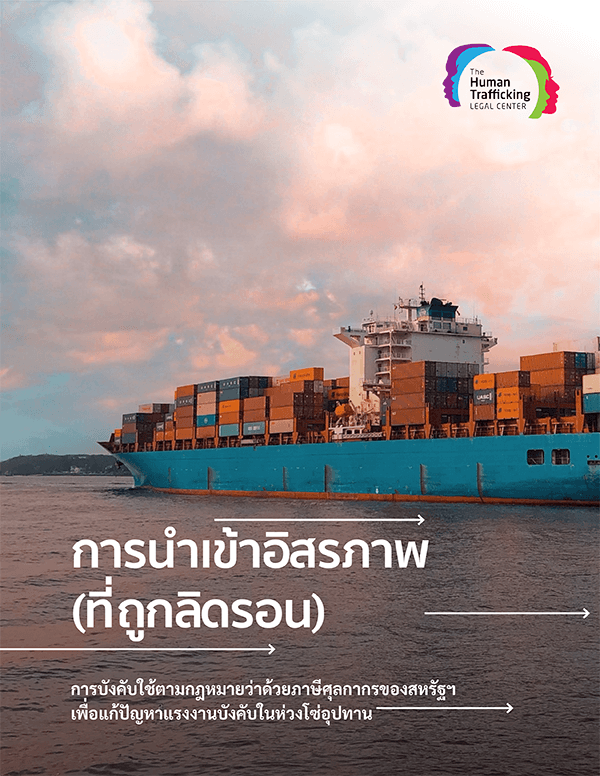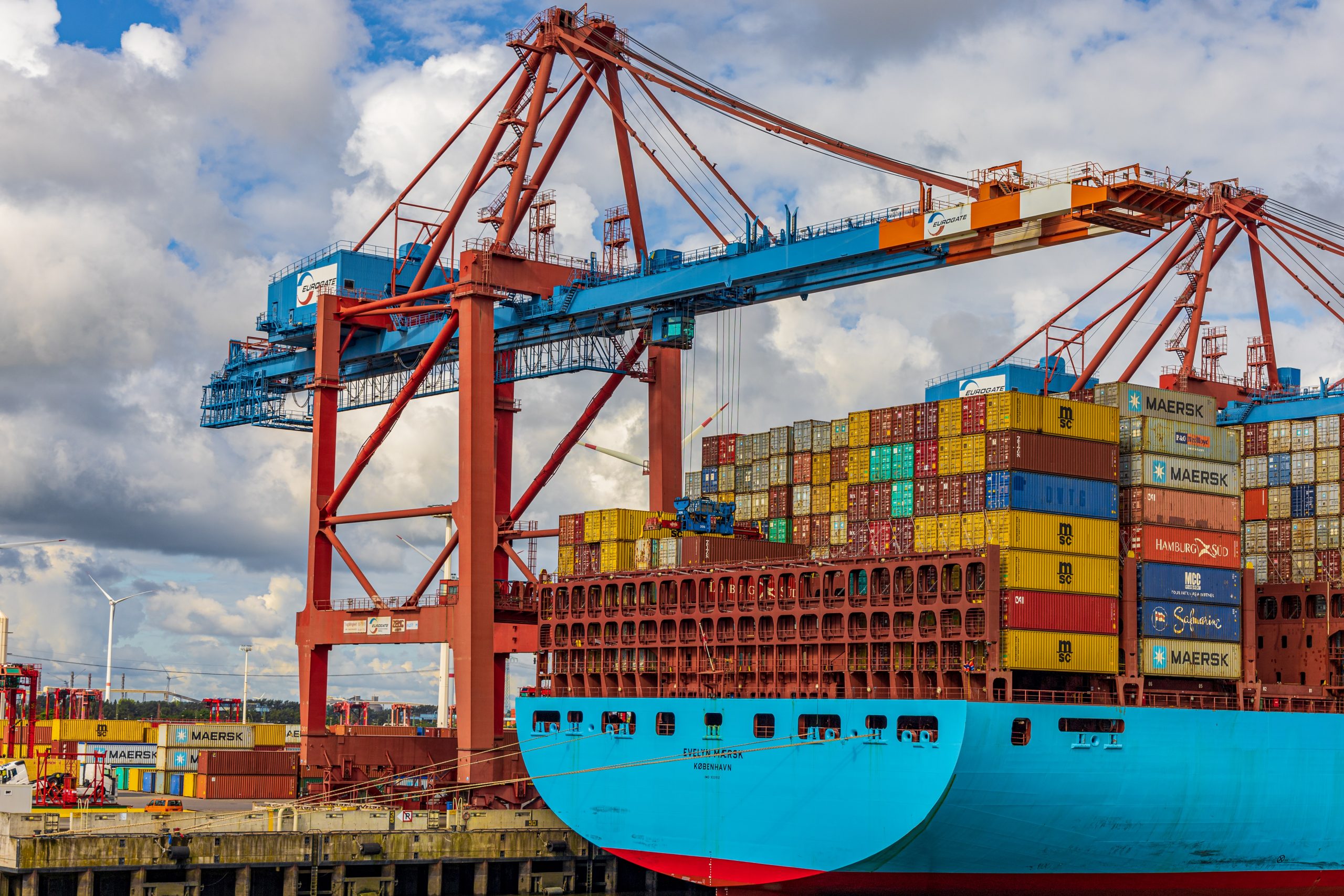
Trade and Forced Labor
Forced labor must not be tolerated in global supply chains. We fight to change the systems that lead to forced labor.
Things to Know
Forced labor is a feature, not a bug, in global supply chains.
Experts estimate that $144 billion* worth of goods made using forced labor enter the U.S. market each year.
The most imported at-risk goods include electronics, apparel, cocoa, seafood, timber, and cotton.
*Source: Global Slave Index 2018
In FY2021, U.S. Customs and Border Protection detained 1,469 shipments of goods suspected of being made using forced labor.
The total value of these shipments was $500 million. Such detentions at port demonstrate the risk to corporations when they fail to eliminate forced labor from their supply chains.
Impact
We have successfully pressed for increased enforcement of the Tariff Act, a powerful tool to combat forced labor in global supply chains.
Forced Labor Is a Feature, Not a Bug, in Global Supply Chains
Around the globe, workers face wage theft, debt bondage, physical violence, horrendous living conditions, seizure of identity documents, steep recruitment fees, and threats of deportation.
Trade Remedies: Real Risk for Corporations
Trade sanctions under the Tariff Act have real consequences for companies that do not eliminate forced labor in their supply chains. The Human Trafficking Legal Center’s work on the Tariff Act has raised the profile and increased the accessibility of this tool.
Worker Agency
Workers must be at the center of trade remedies and should be the biggest beneficiaries. Workers held in forced labor must receive just and equitable remediation from the companies that held them in these conditions. And workers should be involved in decision-making on remedies.
Resources
Public Petitions
- Country: Uzbekistan
- Product: Cotton
- Year Filed: 2013
- Petitioner: International Labor Rights Forum; Cotton Campaign
- Link: Access Petition Here
- Country: Turkmenistan
- Product: Cotton
- Year Filed: 2016
- Petitioner: International Labor Rights Forum; Alternative Turkmenistan News
- Link: Access Petition Here
- Country: Malaysia
- Product: Palm Oil
- Year Filed: 2019
- Petitioner: International Labor Rights Forum; Rainforest Action Network; SumOfUs
- Link: Access Petition Here
- Country: Côte d’Ivoire
- Product: Cocoa
- Year Filed: 2020
- Petitioner: Corporate Accountability Lab and International Rights Advocates
- Link: Access Petition Here
- Country: United Kingdom
- Product: Apparel Products
- Year Filed: 2021
- Petitioner: Liberty Shared
- Link: Access Petition Here
- Country: China
- Product: Cotton
- Year Filed: 2020
- Petitioner: Coalition
- Link: Access Petition Here
- Country: Ireland
- Product: Seafood
- Year Filed: 2021
- Petitioner: Liberty Shared
- Link: Access Petition Here
